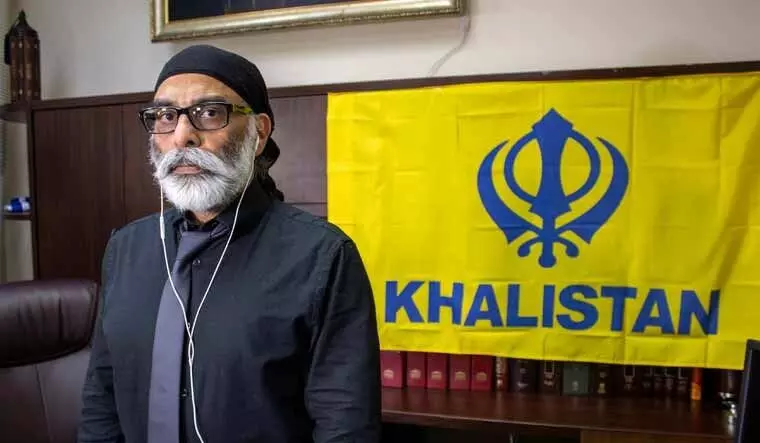New Delhi: In a high-profile event that has stirred controversy, fugitive Lalit Modi, the founder of the Indian Premier League (IPL) and wanted by Indian law enforcement agencies for alleged financial irregularities and tax evasion dating back to 2010, attended the wedding of former Solicitor General of India, Harish Salve, in London. Harish Salve, a prominent legal expert with close ties to the Indian government, married Trina in a grand ceremony, marking his third marriage.
The wedding celebration, which took place in London, garnered attention not only for its opulence but also due to the presence of Lalit Modi among the guests. Attendees at the event included Reliance Foundation chairperson Nita Ambani, supermodel Ujjawala Raut, and other prominent figures.
Harish Salve, aged 68, had previously been married twice, to Meenakshi Salve and Caroline Brossard. His divorce from Meenakshi Salve in June 2020 marked the end of a 38-year marriage. The couple has two daughters, Sakshi and Saaniya. Subsequently, Salve married Caroline Brossard later in 2020.
Salve is currently part of the legal team representing the Government of India in the ongoing Supreme Court hearing on Article 370. He is also a member of the "One National One Election Panel." His legal career is distinguished by his involvement in high-profile cases, including representing Mukesh Ambani's Reliance Industries in the Krishna Godavari Basin gas dispute against Reliance Natural Resources Limited, owned by Anil Ambani.
However, the presence of Lalit Modi at the wedding has sparked significant criticism on social media. Netizens expressed their disapproval and raised questions about the ethics of his attendance, given his fugitive status and the pending allegations against him. They noted the irony of a fugitive attending an event alongside one of India's most influential legal experts with close government connections.
Critics on social media pointed out the potential consequences and ethical implications of such associations, particularly in light of Lalit Modi's legal troubles. Furthermore, they highlighted the suspension of Rahul Gandhi from parliament for referring to Lalit Modi as a thief, emphasizing the sensitivities surrounding his attendance at the wedding.
The controversy surrounding the wedding has ignited discussions and debates on social media platforms, as users share their opinions and concerns regarding the event's implications and the message it conveys.
Modi Ji’s One Nation One Election committee member Harish Salve having gala time with two frauds, Lalit Modi & Moin Qureshi!!
— Vijay Thottathil (@vijaythottathil) September 4, 2023
Bhakths only know one fraud that is Mr George Soros☝🏼 pic.twitter.com/8o9LjftKKj
Lalit Modi (RG was disqualified for calling him out ) enjoying at the after party of Harish Salve’s wedding
— MrsG (@Marvellous_MrsG) September 4, 2023
Harish Salve is the member of ‘One Nation ,one election’ the committee formed by Modi government pic.twitter.com/NS7AeqaxIf
Fraud & Fugitive Lalit Modi seen partying with Modi's close aide & One Nation One Election committee member Harish Salve..
— Spirit of Congress✋ (@SpiritOfCongres) September 4, 2023
Why is that BJP & it's members are always with fraudsters? pic.twitter.com/MtCvhBZZLG
HOW CUTE !!
— Mahua Moitra Fans (@MahuaMoitraFans) September 4, 2023
Fugitive Lalit Modi attends wedding of
former Solicitor General of India, Harish Salve.
Lalit Modi, the founder and ex-chairman of the highly lucrative Indian Premier League (IPL), is wanted by Indian law enforcement agencies on cases of financial irregularities… pic.twitter.com/No87zumvIF
Member of the high-level committee formed by the Modi govt on ‘One Nation, One Election’, Harish Salve enjoying with fugitive Lalit Modi who looted India’s money.
— Shantanu (@shaandelhite) September 4, 2023
And for calling him a thief, Rahul Gandhi Ji was suspended from the parliament. pic.twitter.com/RUJKVNfyck
A fugitive wanted by Law in India just attended the marriage of India's most powerful law expert, the blue-eyed boy of present regime.
— Sandeep Manudhane (@sandeep_PT) September 4, 2023
Summarises the total collapse neatly.
Not just Lalit Modi, the man responsible for the downfall of two CBI chiefs, an ED accused with dodgy dealings- Moin Qureshi- was also at this gala private party. https://t.co/4qn7E27bNF
— Rohini Singh (@rohini_sgh) September 4, 2023
Let the Truth be known. If you read VB and like VB, please be a VB Supporter and Help us deliver the Truth to one and all.
Tiruchirappalli (PTI): Five people have been arrested in connection with the death of the Anna University student, who jumped in front of a speeding train in Pudukottai district, police said on Tuesday.
The deceased, a third-year student from Virudhunagar district, was found dead on the railway track near Mandaiyur on the night of September 20 by the railway police, who later recovered a suicide note from his hostel room.
The student had, in the letter, alleged sexual assault, blackmail, and extortion by five men.
Following this, the police arrested the five suspects. A case has been registered, and further investigation is on.





